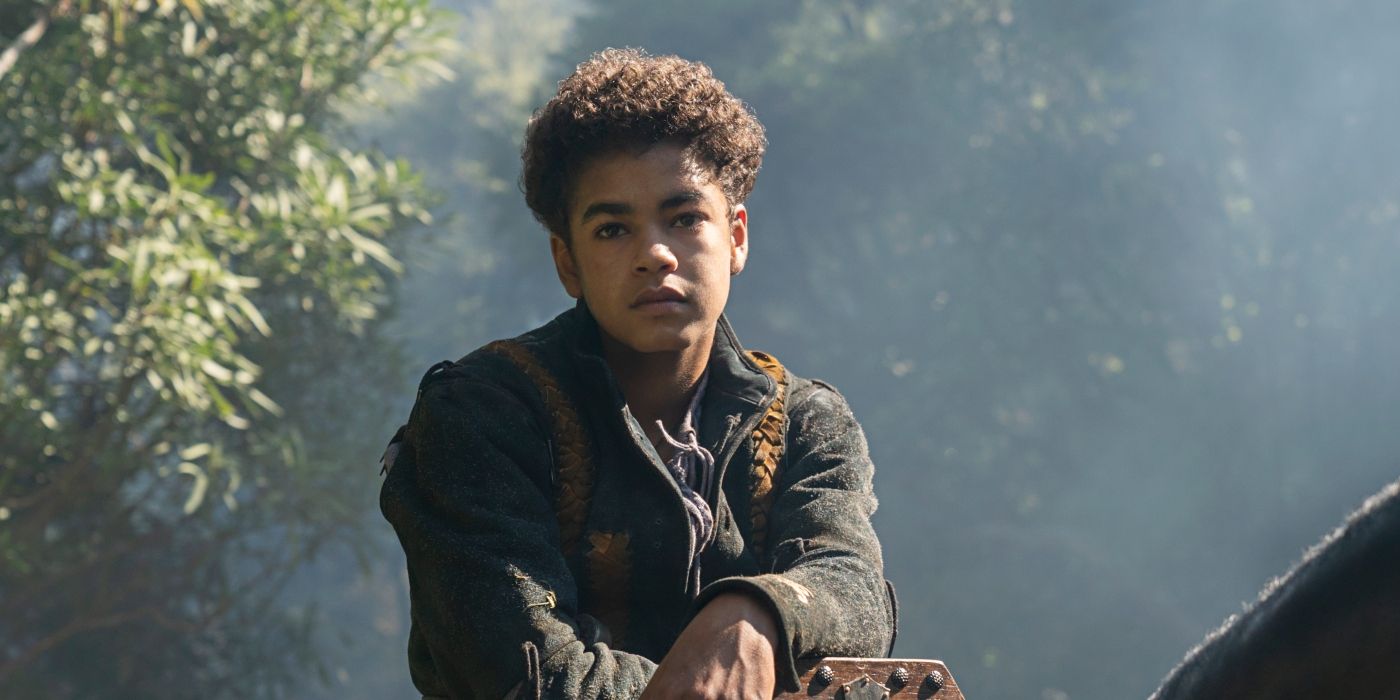In the Netherlands, Tonke Dragt’s 1962 novel The Letter for the King is a beloved classic of fantasy literature, along the lines of The Lord of the Rings or The Once and Future King. But it was only released in English in the United States in recent years, meaning that Netflix’s new six-part TV adaptation (produced in English) is largely aimed at an audience unfamiliar with the source material. Without that existing goodwill as a guide, The Letter for the King comes off as a tame and extremely generic fantasy adventure, with a simplistic plot and tween-friendly tone that makes it feel like My First Game of Thrones. Fantasy fans looking for the next grand epic will be disappointed in the basic story and stock characters, and the show doesn’t have the budget to deliver the kind of spectacle that higher-profile fantasy series can provide.
In the most basic sense, this is a story about the delivery of a letter. It’s one of several letters ominously dispatched by Prince Viridian (Gijs Blom), leader of the combined military forces of the kingdoms of Unauwen and Dagonaut, which have been waging a long war against the magic-infused region of Evillan (Game of Thrones had its seven kingdoms; here, people refer to the “three kingdoms”). With his dark emo hair and penchant for snapping at his underlings, Viridian is clearly evil, and the letters seem to be messages to his allies about staging a coup of some sort against the leaders of Unauwen and Dagonaut.
One of those letters, however, is intercepted by a rebel knight. He attempts to carry it to King Favian (Yorick van Wageningen) of Unauwen, but is mortally wounded by Viridian’s henchmen before he gets far. That’s when the show’s main character, teenage knight-in-training Tiuri (Amir Wilson) enters the main story. While Tiuri and his fellow trainees are in the midst of an all-night vigil as part of their initiation, the knight’s squire knocks on the door and demands help. Only Tiuri responds to the call, and the dying knight entrusts him with the letter and the urgent mission of delivering it to King Favian. Tiuri is, essentially, a refugee from Evillan, adopted by a nobleman in Dagonaut but always treated as an outcast by his peers. He barely passed the trials to join the training for the knighthood. How could he possibly be the right person for this important task?
The answer, as usual, lies in vague talk about ancient prophecies and the coming of a chosen one. Viridian has been busy stealing the magic powers of all the shamans in Evillan (“And so it begins,” says one right before being killed, because that’s what characters say in these kinds of stories), and he’s obsessed with finding the prophesied hero who will oppose him. He’s also obsessed with getting his letter back, and so various factions of knights, adventurers and agents of the different kingdoms are all pursuing Tiuri, as he rides the horse given to him by the dying knight, trying to reach Unauwen before Viridian does.
That horse turns out to be the real hero of the story, saving Tiuri and his various companions so often that it becomes a bit laughable. Tiuri’s main ally (albeit reluctantly at first) is Lavinia (Ruby Serkis), the daughter of an opportunistic schemer (played by Serkis’ more famous dad, Andy, giving the show a brief celebrity boost). She's on her own quest to find a lost merchant route, although that’s quickly abandoned once she gets caught up in the danger surrounding Tiuri. Tiuri and Lavinia have a rote romantic chemistry that feels like a faded copy of something from a YA adaptation. Tiuri’s fellow teen trainees who are sent after him also feel like they come from a mandate to create more relatable characters for younger viewers.
The plot of The Letter for the King diverges significantly from the source novel to more closely resemble modern fantasy stories on TV and in movies, but that doesn’t make it any more exciting or dazzling. Tiuri is a frustratingly passive character who mostly just drifts from one benefactor to another, although learning to believe in himself and stand up for his family heritage is part of his minimal character development. The teen knights who alternately pursue and aid Tiuri get their own useless personal subplots, but they always feel like an afterthought to the main story.
There are no dragons or other mystical creatures here, and the special effects are largely unimpressive, especially during the absurdly anticlimactic final battle, which is little more than a staring contest. The acting is passable but never particularly exciting, with the young Serkis offering a bit of a spark, and Blom making for a pretty limp villain. The dialogue is flat and dull, and no one can seem to agree on how to pronounce Tiuri’s name, which sometimes sounds like “Jury” and sometimes sounds like “Terry” and even occasionally sounds like “Chewie.”
Fans of the book already have a 2008 Dutch film version to watch, which most likely better captures what makes this story such an important piece of literature in its home country. Only fantasy fans who’ve blazed through every other streaming-TV offering and are desperate for something new are likely to get even meager satisfaction from The Letter for the King.
Starring Amir Wilson, Islam Bouakkaz, Jack Barton, Ruby Serkis, Thaddea Graham, Jonah Lees, David Wenham, Tawfeek Barhom and Gijs Blom, the six-episode first season of The Letter for the King debuts March 20 on Netflix.



